
Gracillariidae is an important family of insects in the order Lepidoptera and the principal family of leaf miners that includes several economic, horticultural or recently invasive pest species such as the horse-chestnut leaf miner, Cameraria ohridella.

The European oak leaf-miner or Zeller's midget is a moth of the family Gracillariidae. It is found in Europe south of the line running from Ireland, through Great Britain, Denmark to Ukraine. It is also found in Macaronesia. It is an introduced species in New Zealand and Australia.

Macarostola miniella is a species of moth in the family Gracillariidae. It is endemic to New Zealand. This species is only found in the North Island and the adult moths have two different colour variations.

Macarostola ida is a moth of the family Gracillariidae. It is known from Australia in the states of New South Wales, Queensland, Western Australia and Victoria. In 2019 it was discovered to have become established in Northland and east Auckland in New Zealand.
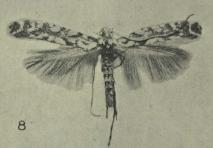
Acrocercops aellomacha is a moth of the family Gracillariidae, known from New Zealand. In 2019 Robert Hoare proposed that this species be provisionally assigned to the genus Eumetriochroa. However as this proposal needs further investigation this species is also currently known as Eumetriochroa (s.l.) aellomacha.

Eumetriochroa aethalota is a species of moth of the family Gracillariidae, known from New Zealand. In 2019 Robert Hoare proposed that this species be provisionally assigned to the genus Eumetriochroa. However as this proposal needs further investigation this species is also currently known as Eumetriochroa (s.l.) aetholata.
Porphyrosela hardenbergiella is a moth of the family Gracillariidae. First identified in a suburban garden in Epsom, Auckland, New Zealand in 1955 feeding on Hardenbergia, the species was likely introduced from Australia, although no members of the species have been found there.

Caloptilia chalcodelta is a moth of the family Gracillariidae. It is endemic to New Zealand. The larvae of this species mine and fold leaves of species in the genus Nestegis.
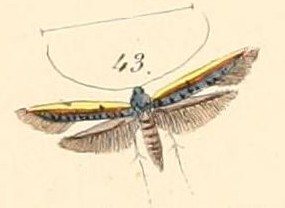
Caloptilia chrysitis is a moth of the family Gracillariidae. It is endemic to New Zealand. The larvae of this species mine and fold the leaves of species in the genera Weinmannia andElaeocarpus as well as Knightia excelsa, although only rarely for the later species.
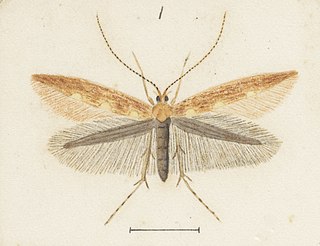
Caloptilia elaeas is a moth of the family Gracillariidae. It is known from New Zealand.

Caloptilia selenitis is a moth of the family Gracillariidae. It is known from New Zealand.
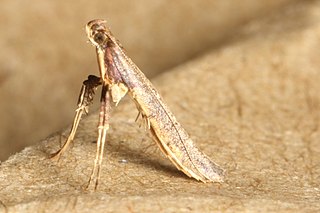
Caloptilia linearis is a moth of the family Gracillariidae. It is known from New Zealand.
Caloptilia scutellariella is a moth of the family Gracillariidae. It has been recommended that this species be further studied as its placement within the genus Caloptilia is in need of clarification. It is known from Ontario, Canada, and Ohio and Michigan in the United States.

Acrocercops leucocyma, also known as the kauri leafminer, is a species of moth in the family Gracillariidae. It is endemic to New Zealand.
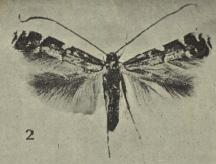
Acrocercops zorionella, also known as the karamu leafminer, is a species of moth in the family Gracillariidae. It is endemic to New Zealand.
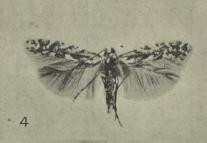
Acrocercops panacivermiforma or Eumetriochroa panacivermiforma is a moth of the family Gracillariidae. It is endemic to New Zealand. In 2019 Robert Hoare and colleagues proposed that this species be provisionally assigned to the genus Eumetriochroa.

Acrocercops panacicorticis or Eumetriochroa panacicorticis is a moth of the family Gracillariidae. It is endemic to New Zealand. In 2019 Robert Hoare and colleagues proposed that this species be provisionally assigned to the genus Eumetriochroa.
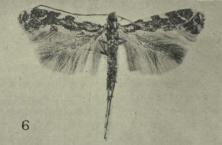
Acrocercops panacifinens or Eumetriochroa panacifinens is a moth of the family Gracillariidae. It is endemic to New Zealand. In 2019 Robert Hoare and colleagues proposed that this species be provisionally assigned to the genus Eumetriochroa.
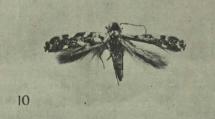
Acrocercops panacivagans or Eumetriochroa panacivagans is a moth of the family Gracillariidae. It is endemic to New Zealand. In 2019 Robert Hoare and colleagues proposed that this species be provisionally assigned to the genus Eumetriochroa.
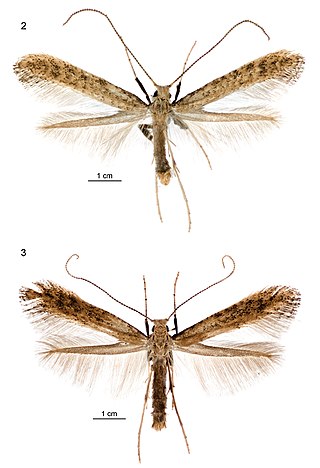
Sabulopteryx botanica is a species of moth in the family Gracillariidae. It is endemic to New Zealand. It was first described in 2019 by Robert Hoare, Brian Patrick and Thomas Buckley. The larval host of this species is Teucrium parvifolium, a plant that has been classified as at risk by the Department of Conservation.











